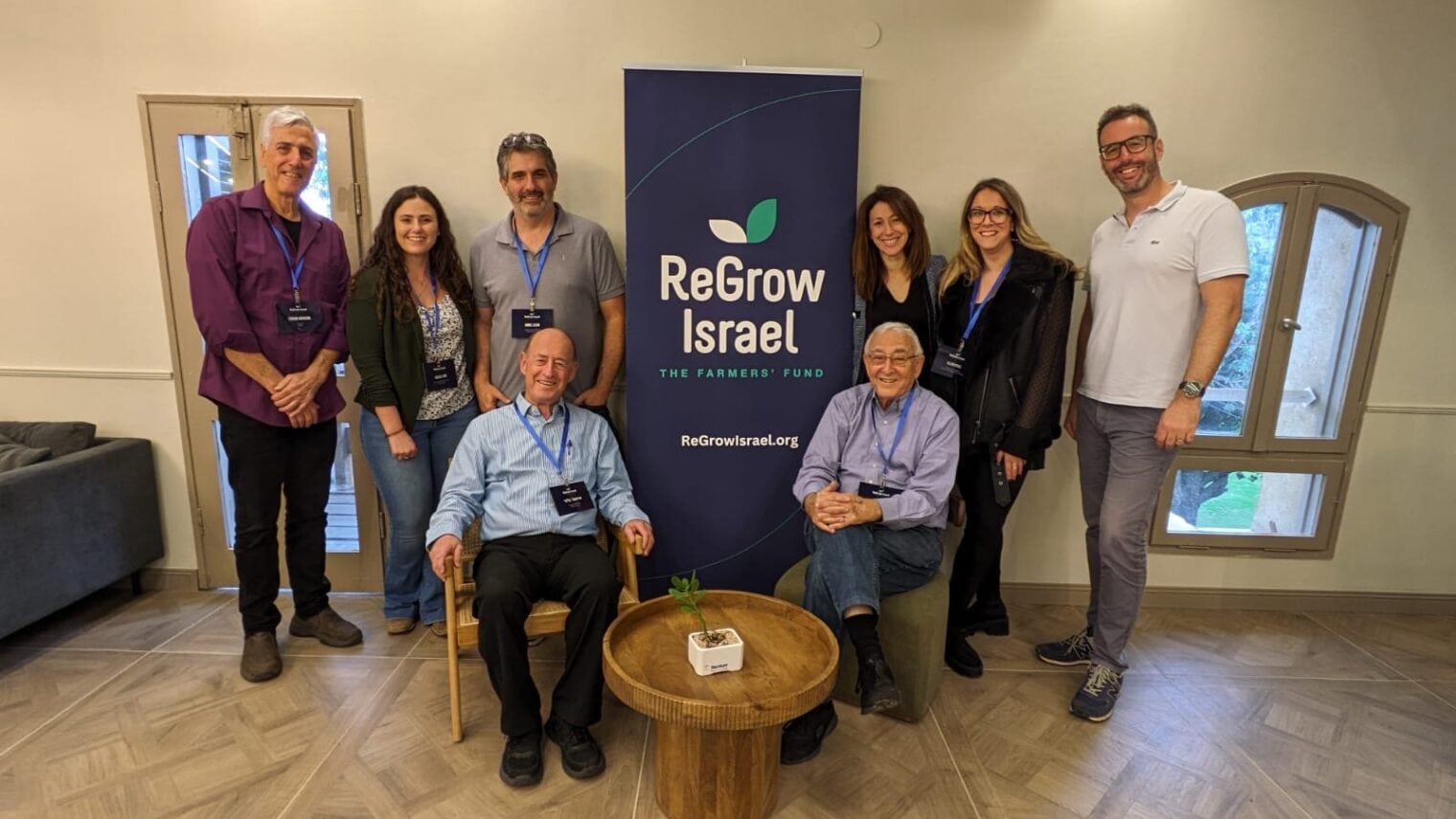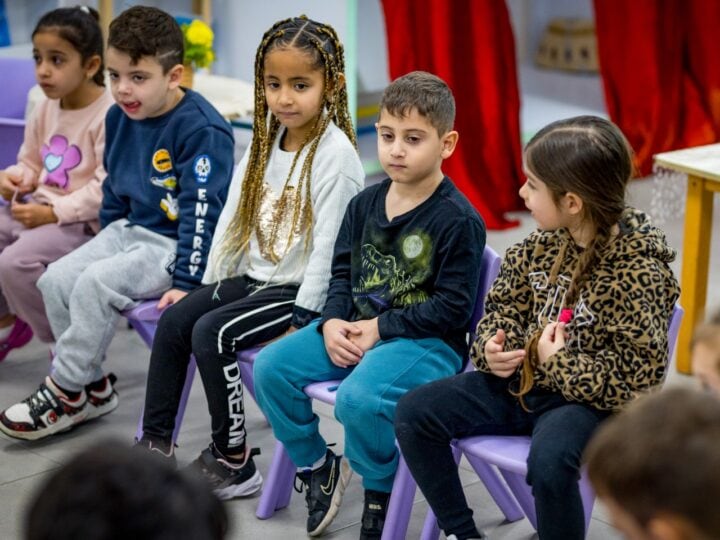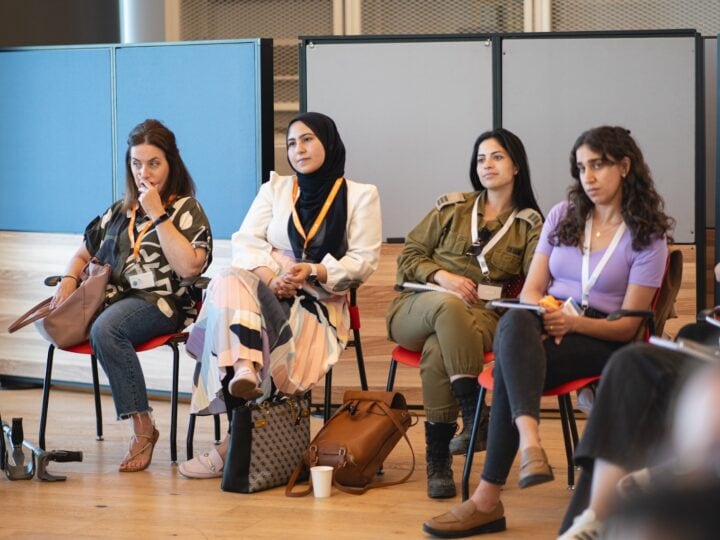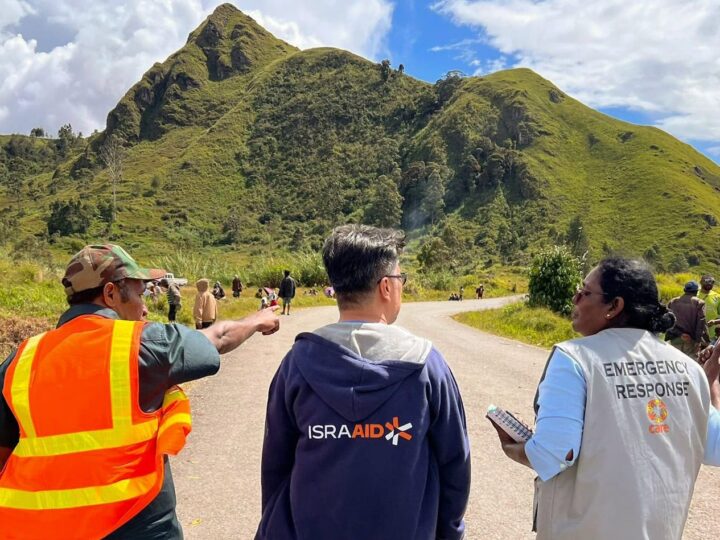On the infamous morning of October 7, Hamas invaders went on a kidnapping and murdering rampage at Kibbutz Nahal Oz near the Gaza border.
But that’s not all. The terrorists took the time and trouble to destroy or steal every bit of the kibbutz’s farming infrastructure.
“The untold story is that the attack on October 7 was also a methodical and strategic attack against the agriculture of the western Negev region,” says Danielle Abraham, executive director of Volcani International Partnerships (VIP) and a leader of its new ReGrow Israel philanthropic project.
Every one of the 40 irrigation control boxes on the Nahal Oz fields was smashed, the customized computer chips inside stolen. Every farm vehicle was burned or taken into Gaza.
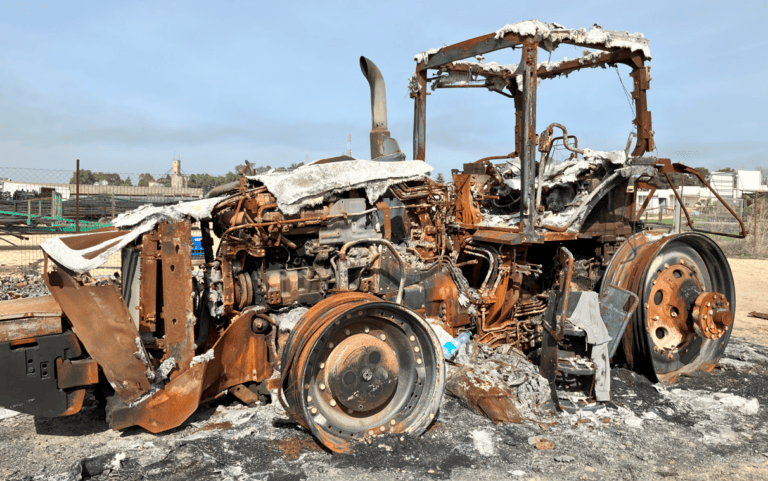
Nahal Oz head of agriculture Moran Freibach, who also suffered personal losses, didn’t let the devastation defeat him.
In an open field between the kibbutz and the Gaza Strip, Freibach and his crew went out with a tank for protection and planted wheat, undeterred by the nearby booms of war.
“He said that Hamas understood the importance of agriculture here, of people’s connection to the land and the national dream of making the desert bloom,” says Abraham.
‘If Hamas is going to try to destroy our connection with the land,’ he told me, ‘we will replant and do it bigger and better.’”
First aid
Achieving this noble goal won’t be cheap or easy.
ReGrow Israel was founded to make it happen for the collective and private farmers throughout the affected region.
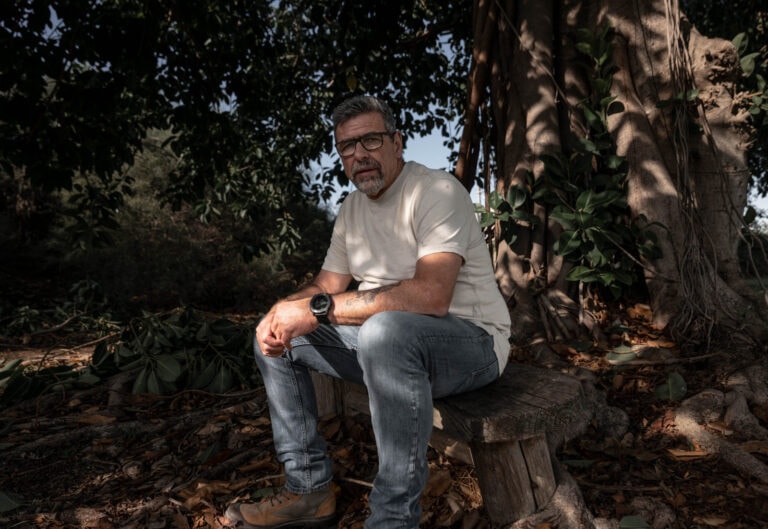
First, the leaders of this philanthropic initiative intend to raise $25 million to replace all damaged farm equipment. Government compensation will be slow to arrive, and will cover only a fraction the cost.
“There is a cash-flow issue; they need to buy equipment immediately to continue farming. And there’s a capital issue. We don’t want them to get further into debt,” says Abraham. “We are not looking to replace the government but to complement what the government offers.”
That’s the “first aid” part of ReGrow Israel’s mandate.
The next step is to rehab the affected 40,000 hectares of western Negev agricultural land — which formerly supplied 70 percent of Israel’s fresh produce – at a whole new level of economic resilience and ecological sustainability.
The golden triangle
“What happened on October 7 is an unprecedented agricultural crisis in Israel,” says Abraham.
“Other organizations responded in an incredible way, focusing primarily on rescuing the harvest and easing the manual labor crisis. Both of these are critically important but they are not a long-term strategy.”
Uniquely, ReGrow is addressing the medium to long term, in tandem with the farmers and the experts.
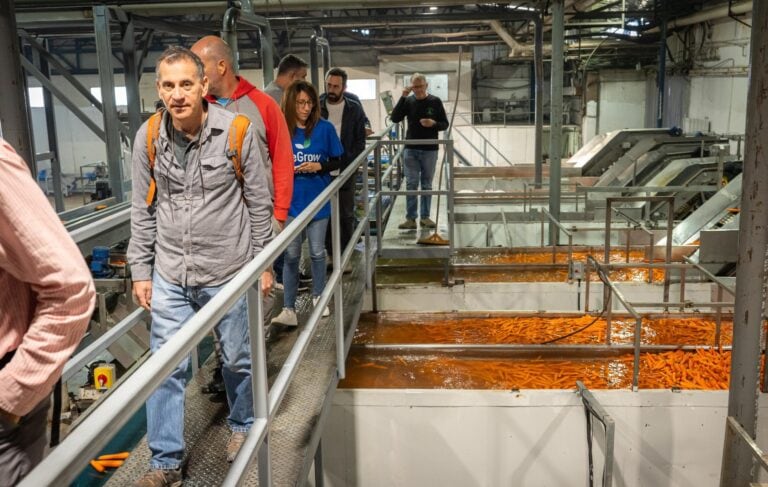
“We see that we need the ‘golden triangle,’ an agricultural ecosystem designed in Israel’s early days,” says Abraham.
“It puts the farmer in the center, surrounded by scientists at one point, agronomists at the second point, and the private sector in the third. The purpose is to solve every challenge farmers face.”
Everyone said yes
VIP is an independent nonprofit that works closely with Israel’s national agricultural research organization, the Volcani Center.
VIP launched ReGrow Israel within days of the onslaught, at the request of the local farming communities.
“We’ve built a national innovation expert committee comprising top scientists, agronomists and economists from across Israel, headed by Prof. Itamar Glazer, who was director of research at Volcani,” says Abraham.
ReGrow’s leadership team is headed by Prof. Yoram Kapulnik, past director of the Volcani Center and current executive director of BARD, the U.S.-Israel Binational Agricultural Research and Development Fund.
“We also have leading experts from Ben-Gurion University of the Negev, MIGAL Galilee Research Institute, the Ministry of Agriculture and others,” Abraham tells ISRAEL21c.
ReGrow is considering both emergency projects and strategic projects. Based on extensive information gathering, the strategic projects will address three priority areas for the western Negev: economic resilience, sustainability and innovation/education.
Economic resilience
ReGrow Israel estimates that the October 7 attacks resulted in some $500 million of lost farm income on top of the equipment losses.
Moreover, the killing and kidnapping of foreign workers, which led others to leave Israel, has caused a shortfall of about 10,000 farmhands.
“To enhance the profitability of farming, the key expertise we can bring as a philanthropy is introducing automation,” says Abraham.
“The more you can automate the dairy, the greenhouses, the orchards, the packinghouses, the more you reduce dependence on foreign labor — which is not only costly but also exposes farmers to great vulnerability,” she says.
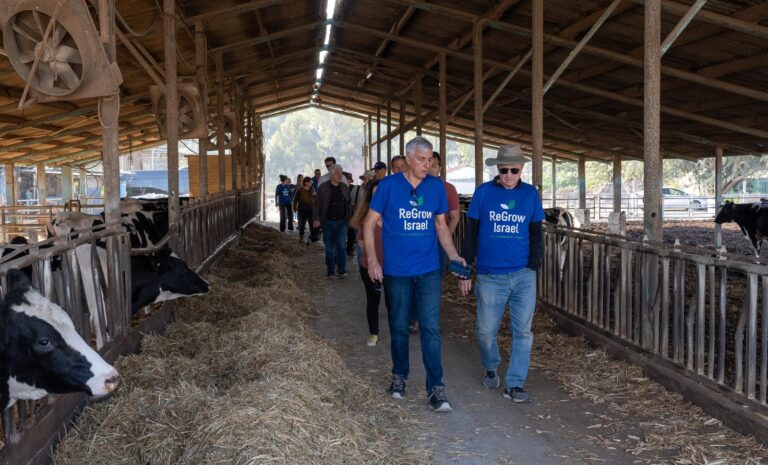
“Another strategy is to diversify crops. A lot of areas grow field crops, which are not as profitable as fruit crops. Field crops are a key staple in assuring food security, so we’re not advocating to reduce them but rather to introduce additional crops or expand certain crops like avocado that are highly profitable.”
Environmental sustainability
“For farming to emerge stronger than before, we have to take into account the environmental piece,” says Abraham.
“This area of 40,000 hectares in the western Negev is on the edge of the desert, it’s semiarid. There are huge issues with water and also soil. How can you do sustainable agriculture in a climate-challenged environment?”
ReGrow Israel wants to help farmers tackle two big environmental problems: plastic and organic waste from greenhouses; and solid waste disposal and intensive water usage in postharvest management.
“There’s more plastic greenhouse cover in the western Negev than anywhere else in Israel. The plastic is replaced roughly every two and a half years. This is a huge cost for the farmer and the plastic is put into landfills, which is hugely polluting,” says Abraham.
“There’s a strategic opportunity here to enhance the economic resilience of the farmers and to ensure sustainability through more sustainable waste disposal.”
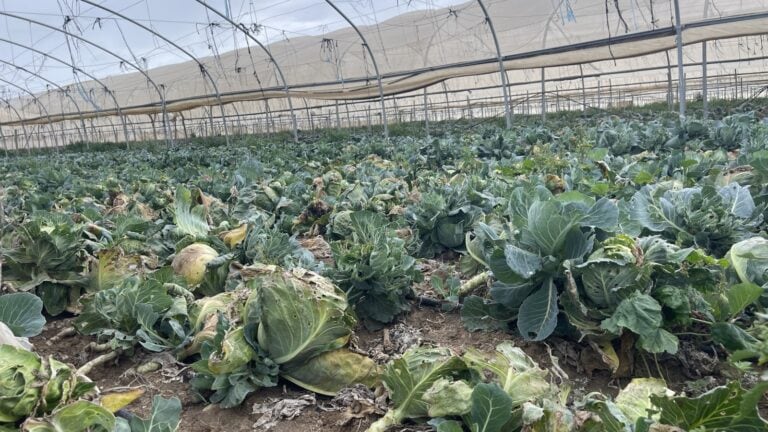
Another urgent environment issue: Aside from the damage inflicted maliciously by Hamas, about a tenth of western Negev farmlands suffered severe soil damage under the treads of heavy IDF vehicles.
“The tanks leave pollutants and oil behind and compact the soil, which harms its fertility. The soil must be rehabilitated,” says Abraham.
“We are looking at the role of philanthropy to make sure they can bring in the right organic matter and rehabilitate the soil properly.”
Innovation and education
“Israel has so much agritech, but not all of it is implemented on our farms,” says Abraham.
ReGrow Israel is considering innovation projects such as providing farmers with high-level actionable data, perhaps including drone monitoring of pests regionally. Another idea is to create “greenhouses of the future” where farmers can test proven technologies and new technologies under development by startups.
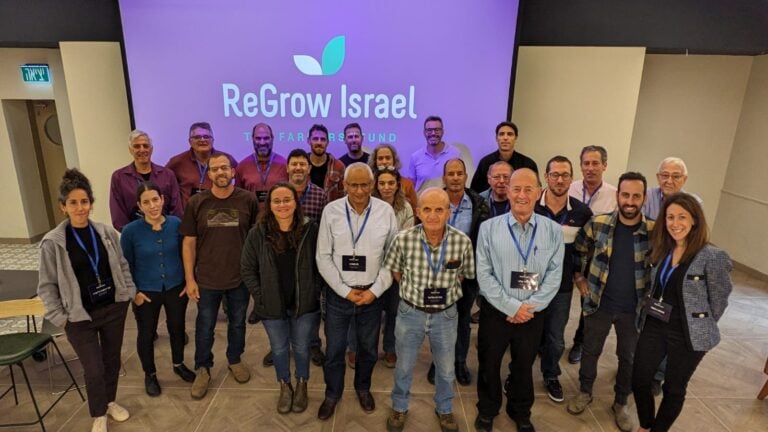
“We’re exploring the idea of a recoverable grant fund, which would give grants to farmers for this purpose. When they see some profit, they can pay part of the grant back to fund and then it will be recycled,” says Abraham.
“Also they need assistance in knowing which technologies will work for them. For example, if they want to automate the dairy shed, we’d fund pilots with top experts to test technologies and find the best ones to scale up.”
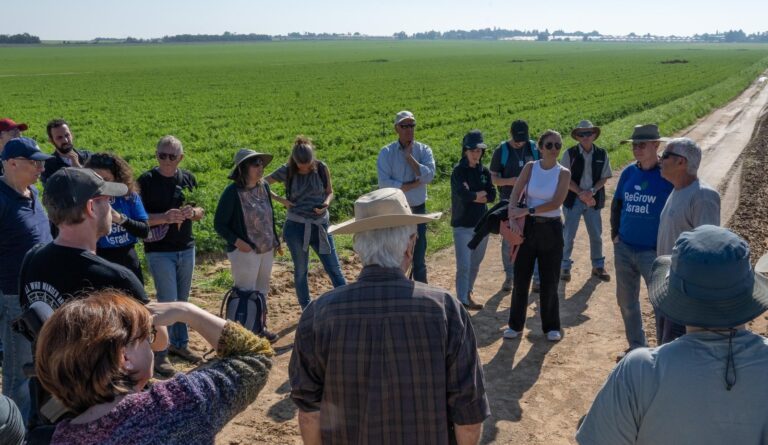
“The education challenge is that farmers are aging and we need to attract the next generation into farming,” says Abraham.
“If we strengthen the economic viability and profitability of farming, if we ensure it’s more sustainable and high-tech, we have a great chance of bringing in the next generation.”
Click here for more information about ReGrow Israel and click here to donate.




